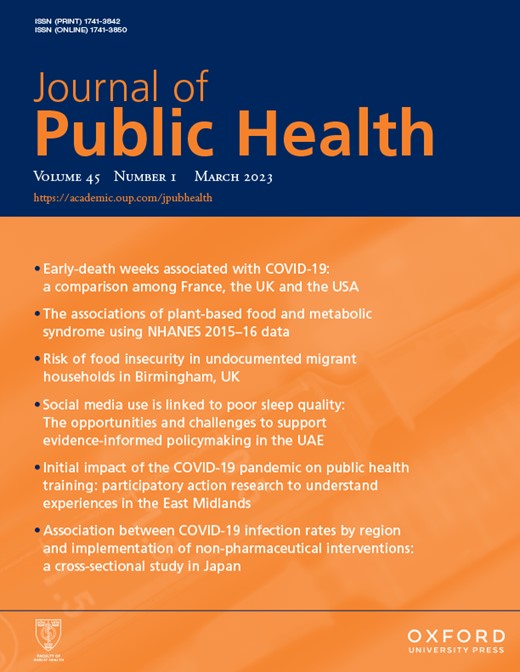-
PDF
- Split View
-
Views
-
Cite
Cite
M Arli Rusandi, Ledya Oktavia Liza, Dominikus David Biondi Situmorang, Change destiny: constructing unexpected career opportunities to improve work ability and reduce depression due to work–family conflicts, Journal of Public Health, Volume 45, Issue 1, March 2023, Pages e157–e158, https://doi.org/10.1093/pubmed/fdac082
Close - Share Icon Share
Dear editor,
In response to the latest article on the topic of ‘The mediating role of work–family conflicts in the association between work ability and depression among Egyptian civil workers’.1 This discussion is very interesting to discuss further about the side-effects that may occur to people in the future, especially when they choose or determine their careers because quite a lot of them think that their lives are no longer meaningful. We believe that ‘luck is not accidental’. Each of us plays a crucial role in creating unexpected career-and life-enhancing events and transforming them into real opportunities. Someone creating opportunities from unexpected events is essential for creating every component of a meaningful, satisfying life and career development.2 Serendipitous events (unpredictable, change, unplanned, happenstance and serendipity) play a significant role in career development.3
The Role of Chance Events in career decision making, this has the most significant impact on career development.4,5 So, career counselors need to facilitate their clients about the importance of engaging in various exciting and rewarding activities, ensuring their reactions, remaining alert to alternative opportunities and learning skills to succeed in each new activity.6–12
However, according to our experience as counseling practitioners, clients believe more in ‘destiny’ and ‘fate’ as a condition. Some even believe that their sustenance is predetermined before they are born. If something good happens, they call it ‘good luck’ and a bad thing in life ‘bad luck’. Destiny can be changed.13 In this paper, we emphasize several points regarding ‘destiny’.
(i) Destiny moves dynamically with millions of variables influencing it. Humans have ‘free will’ as freely as possible, can choose whatever they want, and can prove it right now.
(ii) In addition to ‘can choose anything’, paying attention to the ‘impact of actions’ is necessary. Whatever choices are made, the impact will return to the individual.
(iii) Persistence/unyielding pursuit of destiny. Hard work and earnestness is the key to achieving the best destiny.
(iv) Tawakal means surrender and being patient after making hard and earnest efforts and prioritizing the role of God in achieving destiny.
So it can be concluded that the skills to change destiny include: flexibility, responsibility, persistence and tawakal. To improve the skills to change destiny, we recommend that career counselors use the ‘rapid counseling’ principle developed by Situmorang.14 The rapid counseling contains techniques for scaling questions and miracle questions designed for one meeting. But to improve the skills to change destiny, it is better to do two sessions and some modifications to the work steps, namely:
(i) Setting goals, clients are convinced that they can behave effectively and have free will.
(ii) Scaling questions, using scale questions to identify something that is not easily observed, such as feelings, moods or communication.
(iii) Exception Question, the client learns by comparing one phenomenon to another and discovering what he calls ‘news of difference’. Exception question members go straight to times when problems do not occur or are infrequent or less intense.
(iv) Miracle questions, through these questions, creative thinking is triggered to create new goals or ambitions.
(v) The formula first session task (FFST) is a form of homework that can be given to counselees to complete between their first and second sessions.
Conflict of interest
The authors declare no conflict of interest in this paper.



